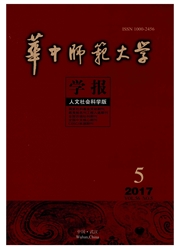

 中文摘要:
中文摘要:
美国实用主义哲学家约翰·杜威提出了一种无所不包的社会民主观,把民主推行到人类活动的所有领域,甚至推进到宗教信仰领域,寻求科学探究和社会实践的一致性、公共生活和私人生活的连贯性、民主政治和自由信仰的统一性,主张科学实验、民主政治、自由信仰和社会进步具有内在兼容性,用实验主义整体论改造传统形而上学的本体论,用民主政治观取代独断政治观,提升人们对现代民主生活的整体期望,寻求哲学、宗教、科学和人类普通生活的连续性,论证民主是人类生活的主要方式,开启了实用主义的政治哲学转向。他的民主社会思想成为罗尔斯良序社会观念的先导。他的政治哲学对20世纪后半个世纪的新实用主义、解构主义和后现代主义产生了深远影响。
 英文摘要:
英文摘要:
American pragmatist John Dewey suggests a comprehensive view of social democracy.He pushes democracy into all areas of human activities,even into religion societies or church communities,and he tries to unite scientific inquiries and social practices,to explore the coherence between public sphere and private life,democratic politics and liberty of belief.He believes that there is some inherent constancy among scientific experiment,democracy,freedom and social progress.He transforms the traditional metaphysics with a holistic experimentalism,replaces the arbitrary politics with the democratic politics,improves the expectations of the modern human life as a whole,seeks the continuity of philosophy,religion,science and common life,and justifies that democracy is the main way of human life.John Dewey leads pragmatism turning on political philosophy.In the second half of the 20 th century,his political philosophy profoundly affects new pragmatism,deconstruction and postmodernism.
 同期刊论文项目
同期刊论文项目
 同项目期刊论文
同项目期刊论文
 期刊信息
期刊信息
